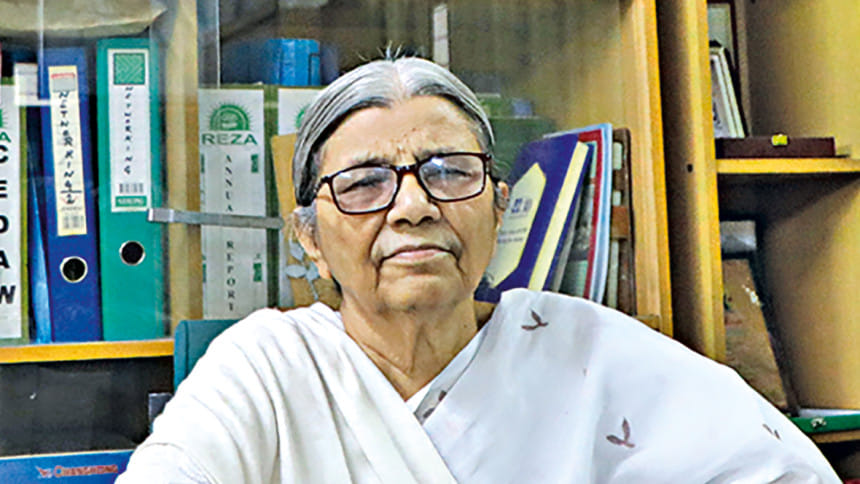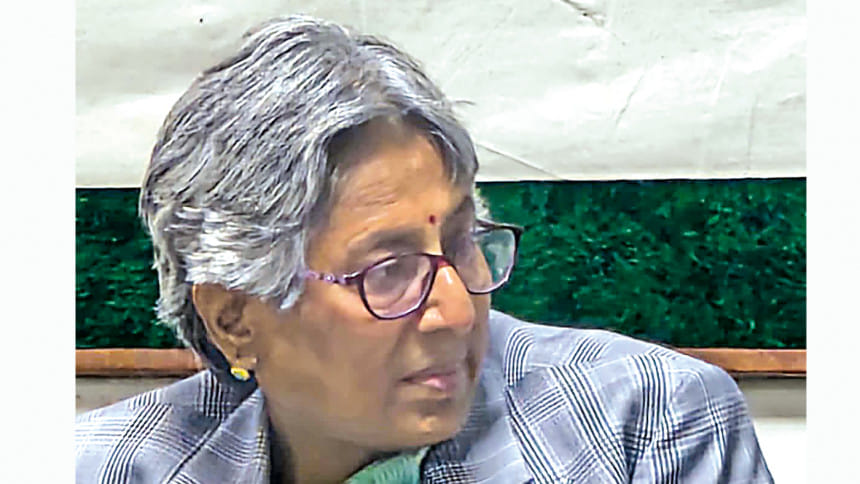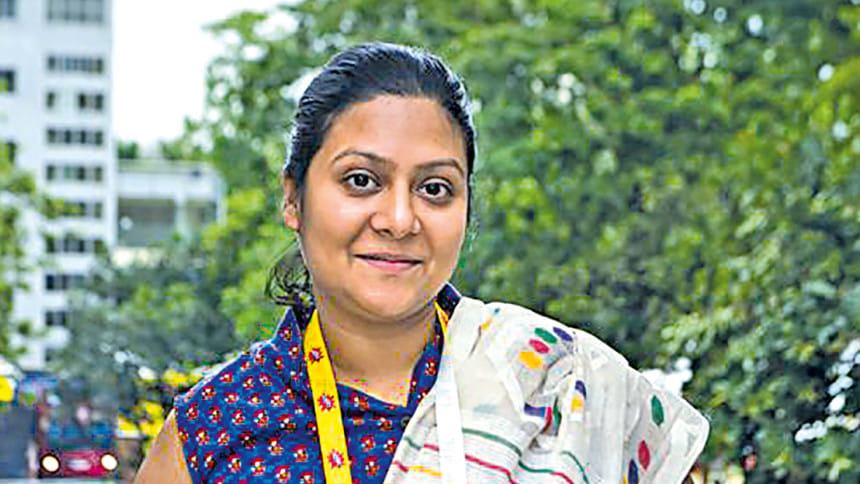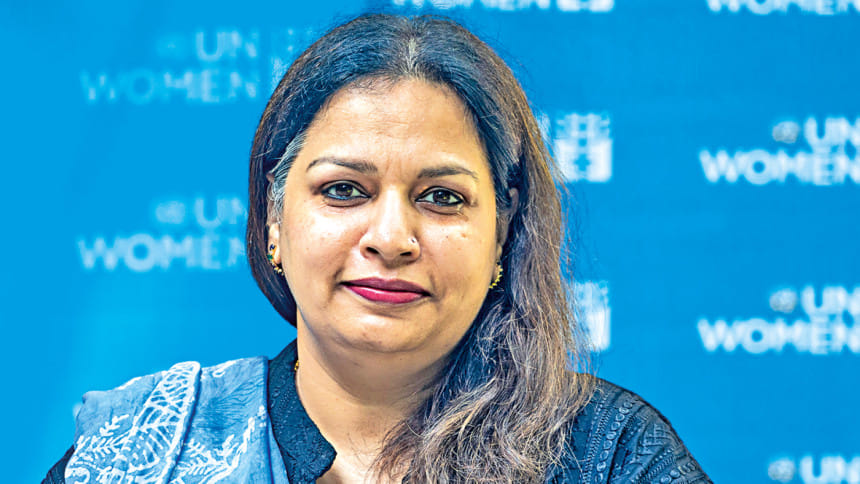International women’s day 2025: For All Women And Girls: Rights. Equality. Empowerment

Despite decades of activism and progress, women in Bangladesh continue to face systemic barriers to equality, representation, and safety. From their historic role in nation-building to recent mass movements advocating for justice and inclusion, the fight for gender equity remains urgent. As discrimination against women sustains and gender-based violence rises, two Charter of Demands have been developed from the women's movement that were facilitated by women's rights organizations Bangladesh Mahila Parishad and Bonhishikha, and Naripokkho to push for transformative reforms. This article outlines their key priorities, from immediate legal protections to long-term structural changes, and highlights the need for sustained advocacy to ensure an inclusive, equitable future for all.
Context
Women have long been central to social transformation in Bangladesh, playing pivotal roles in the liberation war, post-war reconstruction, resistance against autocratic regimes, and transnational solidarity movements. The Fourth World Conference on Women in Beijing (1995) reinforced commitment to the UN Convention on the Elimination of All Forms of Discrimination Against Women (CEDAW), spurring activism on gender-based violence, economic empowerment, political representation, and legal reforms. Despite progress, including women leaders serving as heads of state since 1991, gender inequality persists. The feminist movement saw historic surges, particularly in response to rising sexual violence in 2020, culminating in a mass movement against rape and impunity. The recent 'Quota Reform Movement' highlighted systemic exclusion, with the removal of the 10% women's quota contradicting Sustainable Development Goals (SDGs) and exacerbating vulnerabilities. Even after the anti-discrimination movement that led to regime change, women remain underrepresented in interim governance and reform commissions, with young women particularly sidelined. In this time of unprecedented pushback against gender equality and women's rights, it is more critical than ever to push for gender equality, women's empowerment, and the elimination of violence against women and girls.

"Opportunities for women in leadership and participation in decision-making processes will increase through their political empowerment. It is important to remember that women's political empowerment is not solely a women's issue; rather, it should be integrated into mainstream politics as an essential component of national development."
Recognizing the past successes of the women's movement in the country and striving for a more inclusive, gender-responsive, and equitable society, Bangladesh Mahila Parishad and Bonhishikha, with support from UN Women, jointly developed a Charter of Demands. Aiming to eliminate all forms of discrimination, the Charter represents a collective voice, uniting women from diverse backgrounds and generations who face intersecting challenges and are often deprived of equitable opportunities. An intersectional and intergenerational approach was adopted to frame the Charter, ensuring comprehensive engagement with a wide range of stakeholders at both national and grassroots levels.

"Since 1983, Naripakkho has been actively taking part in movements for positive changes in the status of women. We seek these changes in the family, society, and state laws. We demand equal rights in resources and children. Therefore, we strongly urge the government to withdraw the reservation of Article 2 and 16-1(c) of CEDAW. We want to see violence free lives of women. But to achieve this, it is of utmost importance that women are viewed as beings whose value lies beyond in their anatomical bodies. This necessitates cultural deconstruction. Naripakkho wants women to be recognized as citizens with rights and as dignified individuals in the family, the society, and the state. Our expectation is a worldly, secular state and society."
This year's International Women's Day theme is "For ALL women and girls: Rights. Equality. Empowerment". Under the banner of UN Women's global campaign to mark the 30th anniversary of the Beijing Declaration and Platform for Action, "For ALL Women and Girls", this year's International Women's Day is a rallying cry to take action in three key areas: Advance women's and girls' rights: Fight relentlessly for women's and girls' full range of human rights, challenging all forms of violence, discrimination, and exploitation.
1. Advance women's and girls' rights:
Fight relentlessly for women's and girls' full range of human rights, challenging all forms of violence, discrimination, and exploitation.
2. Promote gender equality:
Address systemic barriers, dismantle patriarchy, transform entrenched inequities, and elevate the voices of marginalized women and girls, including young people, to ensure inclusivity and empowerment.
3. Foster empowerment:
Redefine power structures by ensuring inclusive access to education, employment, leadership, and decision-making spaces. Prioritize opportunities for young women and girls to lead and innovate.

As long as every citizen of this country does not have equal rights, as mandated by the constitution, no reform, no matter how well-intentioned, will bring real change. Policies and laws matter, but without proper implementation, monitoring, and accountability, their impact remains limited. In its 54 years of independence, after fighting against dictatorship, corruption, and autocratic governments for citizen rights and democracy that were often led and participated by women and socially excluded communities, we should have built a more just and equitable society. Yet, selective amnesia allows people to forget about women once their own demands are met, and most of our male-counterparts are often unaware and overlook the specific needs of women. Change will not come until women are treated as equal citizens and human beings. Our demand is simple - equal rights, dignity, justice and equal representation in decision making."
Post July, Naripokkho presented a charter to the interim government that highlights their demands in eight categories. Based on extensive consultation process Naripokkho suggested short term, mid-term and long-term steps for action. The eight categories include Women live free from violence. Women's economic rights; Women's Political rights, Women's Health Right; Women's Education, Climate and Environment justice, rights of marginalized women and communal harmony.

"As we commemorate the historic 30th anniversary of the Beijing Declaration and Platform for Action, we must celebrate progress and recognize that the gains have been too slow, too fragile, too uneven. Women and girls continue to face significant barriers to equality, including political underrepresentation, violence, and entrenched social norms. We need freedom from poverty, an end to violence, equal decision-making power, peace, climate justice and a digital revolution. The upcoming Commission on the Status of Women session presents a critical opportunity to renew our commitment to substantive equality. 2025 is our turning point. Gender equality is the way forward—not just for women, not just for girls, but for the future of humanity."
The Charter of Demands developed by Bangladesh Mahila Parishad and Bonhishikha focuses on six thematic areas-education, sexual and gender-based violence, health, law reformation and access to justice, women's participation, economic empowerment, decision-making and care work; gender budget and good governance. Under these, specific recommendations were put forward that needs attention to address critical issues affecting women and marginalized communities based on feasibility for short-term, mid-term and long-term reform initiatives.
DEMANDS TO BE PRIORITISED FOR IMMEDIATE ACTION
These demands require urgent attention and should be implemented immediately-
- Institutionalize safeguarding policies to address bullying and sexual harassment in any institution or organization. Enact a comprehensive 'Sexual Harassment Prevention and Protection Law'
- Full ratification of CEDAW and withdraw reservation from Article 2 and Article 16.1(c)
- Eliminate the special provision of 'Child Marriage Restraint Act of 2017', which allows child marriage in "special cases"
- Revise rape law to include all gender identities and expand the legal definition of rape to encompass all forms of non-consensual sexual acts, including rape within marriage.
- Revise Section 146 (3) of the Evidence Act, 1872 (amended)
- Enact a new Digital/Cyber Security Act that conforms to international human rights standards and also address tech/AI-based violence.
- Amend the Constitution that ensures the separation of state affairs from religious influence.
- Following Convention 107 of the 'Indigenous and Tribal Populations Convention 1957', continue recognising Indigenous communities as "adibashi" to uphold their land rights.
- Revise the quota system published in July 2024 and reintroduce a separate quota for women; and untangle the quota for transgender individuals from that for people with disabilities. Establish a dedicated quota for gender-diverse individuals, as well as separate quotas for marginalised groups like Indigenous communities, Dalits, ethnic and religious minorities, and highly vulnerable groups such as the children of sex workers and tea garden workers.
- Ratification of ILO's C190 convention on eliminating violence and harassment in the world of work.
DEMANDS TO BE PRIORITISED FOR MID-TERM ACTION
These demands should be addressed in the medium term and require planning, capacity-building, and some systemic changes to ensure proper implementation
- Recognize women farmers and fish farmers contribution in Bangladesh's GDP and agriculture through disaggregated data
- Revisit the anti-discrimination bill to ensure no citizen in Bangladesh faces discrimination based on religion, language, race, caste, sex, or place of birth, granting marginalized communities' access to education, jobs, healthcare, and housing.
- Full implementation of the Domestic Workers Protection and Welfare Policy, 2015.
- Ensure the registration of marriages of all religions and inter-religious partnerships.
- Train law enforcement and legal professionals to effectively investigate and prosecute sexual assault cases.
- Investigate Sexual and Gender Based Violence related to land grabbing, as urged by the CEDAW committee in 2016.
- Establish district-level cyber security cells for faster response in tech-based violence and crimes.
- Ensure that the electoral process is inclusive and representative through direct election of women to reserved seats ensuring at least 50% representation of women in parliament.
- Reinforce the mandate to have at least 33% women in political parties' leadership roles.
- Establish a climate and gender budget to advance community- and women-led solutions, especially for vulnerable groups
- Institutionalize including a comprehensive range of gender options beyond "man" and "woman" in different forms and documents, to ensure inclusivity.
- Recognize unpaid care work at the state level and increase investment in the care economy.
DEMANDS TO BE PRIORITISED FOR LONG-TERM ACTIONS
These demands require systemic change, policy reforms, and structural improvements and should be integrated into long-term national strategies, operational and action plans.
- Eliminate and update colonial laws that discriminate against women, gender diverse groups, focusing particularly on property rights, inheritance laws, and marital regulations.
- Reform inheritance laws and implement a 'Uniform Family Code' to ensure equal rights in private laws for all.
- Establish secondary schools near tea gardens and remote areas to reduce school dropouts from marginalised communities.
- Promote STEM education for women and girls.
- Ensure budget, space and resources to facilitate women's sports through educational institutions.
- Ensure structural designs of public buildings are updated to make them accessible for people with disabilities.
- Enforce Section 46 of the 'Bangladesh Labour Act' (2006) to grant mothers four months of maternity leave.
- Integrate mental health services into primary healthcare system and provide free post-crisis mental health support caused by disasters.
- Enforce non-discriminatory policies within healthcare services, including access to fertility treatments and SRHR services for all irrespective of marital status, age and gender.
- Ensure equal representation of men and women, and the inclusion of local marginalised community representative in local administrative positions like chairperson, UP member.
- Ensure rigorous survey of People with Disability to collect gender-segregated data and identify those in need of disability stipends while revising the amount to reflect current living costs.

 For all latest news, follow The Daily Star's Google News channel.
For all latest news, follow The Daily Star's Google News channel. 



Comments